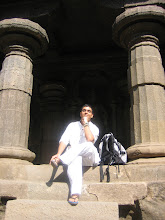Deep in my heart, and rears its head;
Rich are its fruits: they joy dispense;
Transport the heart, and ravish sense.
In love's sweet swoon to thee I cleave,
Bless'd source of love . . .
-Saint Francis of Assisi


...When we look at the world around us, Newtonian physics is perfectly sufficient. It explains most things that we deal with. But then it was discovered that actually when you look at motion at really small levels — beyond the level of the atoms — Newton's laws no longer apply. A new physics was needed, hence, we eventually ended up with quantum physics. It caused a lot of controversy — even Einstein himself didn't believe in it. Now, if you look at the mind, consciousness, and the brain, the assumption that the mind and brain are the same thing is fine for most circumstances, because in 99% of circumstances we can't separate the mind and brain; they work at the exactly the same time. But then there are certain extreme examples, like when the brain shuts down, that we see that this assumption may no longer seem to hold true. So a new science is needed in the same way that we had to have a new quantum physics...

I will begin with some questions: If Buddhism is to be successfully transplanted in the U.S., does it need a monastic Sangha as its cornerstone? Must there be a monastic Sangha at all, or is Buddhist monasticism an outdated institution? Can the teachings flow entirely through a “lay Sangha,” through lay teachers and communities of lay practitioners? If monastics are necessary, what should their role be? What their duties? What changes in lifestyle and orientation, if any, are required by the new conditions imposed by the Western culture in which Buddhism has taken root?
My personal belief is that for Buddhism to successfully flourish in the West, a monastic Sangha is necessary. At the same time, I think it almost inevitable that as Buddhism evolves here, monasticism will change in many ways, that it will adapt to the peculiar environment impressed upon it by Western culture and modes of understanding, which differ so much from the culture and worldview of traditional Asian Buddhism. As a result, I believe, the role monastics play in Western Buddhism will also differ in important ways from the role they play in Asia. I do not think this is something that we need lament or look upon with dread. In some respects, I believe, such a development is not only inevitable but also wholesome, that it can be seen as a sign of Buddhism’s ability to adapt to different cultural conditions, which is also a sign of spiritual strength. At the same time, I also think we need to exercise caution about making adaptation. It would certainly be counterproductive to be in a hurry to make changes uncritically, without taking the long-standing pillars of our Buddhist heritage as our reference point. If we are too hasty, we might also be careless, and then we might discard fundamental principles of the Dharma along with the adventitious cultural dressing in which it is wrapped...
 Fuel your meditation practice with this classic chai recipe straight from the land of the first Buddha images, Rumi, and the Blue Mosque of Mazar-e-Sharif
Fuel your meditation practice with this classic chai recipe straight from the land of the first Buddha images, Rumi, and the Blue Mosque of Mazar-e-Sharif
 Ajahn Chah is considered one of the greatest Dhamma teachers of modern times. My own assessment of him? He's totally awesome! I think the first book of his I read was "Living Dhamma". His clear-sighted and direct, no nonsense presentation of the Dhamma was something I immediately took a liking to. Although coming from the Thai forest tradition, he has a very Ch'an-like style. My all time favorite book from him is "A Still Forest Pool", a collection of Dhamma talks compiled and edited by two of his students; Jack Kornfield and Paul Breiter. The explanation of the title is given by Ajahn Chah himself:
Ajahn Chah is considered one of the greatest Dhamma teachers of modern times. My own assessment of him? He's totally awesome! I think the first book of his I read was "Living Dhamma". His clear-sighted and direct, no nonsense presentation of the Dhamma was something I immediately took a liking to. Although coming from the Thai forest tradition, he has a very Ch'an-like style. My all time favorite book from him is "A Still Forest Pool", a collection of Dhamma talks compiled and edited by two of his students; Jack Kornfield and Paul Breiter. The explanation of the title is given by Ajahn Chah himself:Each person has his own natural pace. Some of you will die at age fifty, some at age sixty-five, and some at age ninety. So, too, your practices will not be identical. Don't think or worry about this. Try to be mindful, and let things take their natural course. Then your mind will become still in any surroundings, like a clear forest pool. All kinds of wonderful, rare animals will come to drink at the pool, and you will clearly see the nature of all things. You will see many strange and wonderful things come and go, but you will be still. This is the happiness of the Buddha.
Meditation is not separate from the rest of life. All situations provide opportunity to practice, to grow in wisdom and compassion. Achaan Chah teaches that the right effort for us is to be mindful in all circumstances without running away from the world but to learn to act without grasping or attachment.
Furthermore, he insists that the foundation of a spiritual life is virtue. Although virtue is neglected in our modern society, it must be understood and honoured as a fundamental part of meditation. Virtue means taking care so that we do not harm other beings by thought, word, or deed. This respect and caring puts us into a harmonious relationship with all life around us. Only when our words and deeds come from kindness can we quiet the mind and open the heart. The practice of non-harming is the way to begin turning all life situations into practice.
To further establish our lives on the Middle Way, Achaan Chah recommends moderation and self reliance. A life of excess is difficult soil for the growth of wisdom. To take care with the basics-such as moderation in eating, sleeping, and in speech-helps bring the inner life into balance. It also develops the power of self-reliance. Don't imitate the way others practice or compare yourself to them, Achaan Chah cautions; just let them be. It is hard enough to watch your own mind, so why add the burden of judging others. Learn to use your own breath and everyday life as the place of meditation and you will surely grow in wisdom.



If human memory were truly digital, it would have just received an upgrade from something like the capacity of a floppy disk to that of a flash drive. A new study found the brain can remember a lot more than previously believed.Seems like Ānanda was on to something...
In a recent experiment, people who viewed pictures of thousands of objects over five hours were able to remember astonishing details afterward about most of the objects.
Though previous studies have never measured such astounding feats of memory, it may be simply because no one really tried.
"People had never tested whether people could remember this much detail about this many objects," said researcher Timothy Brady, a cognitive neuroscientist at MIT. "Nobody actually pushed it this far."
When they did push the human brain to its limits, the scientists found that under the right circumstances, it can store minute visual details far beyond what had been imagined.

In the long history of the world, only a few generations have been granted the role of defending freedom in its hour of maximum danger. I do not shrink from this responsibility--I welcome it.
I do not believe that any of us would exchange places with any other people or any other generation. The energy, the faith, the devotion which we bring to this endeavor will light our country and all who serve it--and the glow from that fire can truly light the world.
And so, my fellow Americans: ask not what your country can do for you--ask what you can do for your country.
My fellow citizens of the world: ask not what America will do for you, but what together we can do for the freedom of man.
 Much has been spoken of service but what exactly are we to do? Shall we quit our jobs, give away all our possessions to charity, and become lifelong humanitarian aid workers? While there's certainly nothing wrong with that course of action, it just isn't practical for most people. JFK however, is not saying that we should aspire to be super heroes. Whatever we can do is more than enough. Mother Teresa, a true bodhisattva, said "we can do no great acts, only small acts with great love."
Much has been spoken of service but what exactly are we to do? Shall we quit our jobs, give away all our possessions to charity, and become lifelong humanitarian aid workers? While there's certainly nothing wrong with that course of action, it just isn't practical for most people. JFK however, is not saying that we should aspire to be super heroes. Whatever we can do is more than enough. Mother Teresa, a true bodhisattva, said "we can do no great acts, only small acts with great love."Finally, whether you are citizens of America or citizens of the world, ask of us here the same high standards of strength and sacrifice which we ask of you. With a good conscience our only sure reward, with history the final judge of our deeds, let us go forth to lead the land we love, asking His blessing and His help, but knowing that here on earth God's work must truly be our own.

